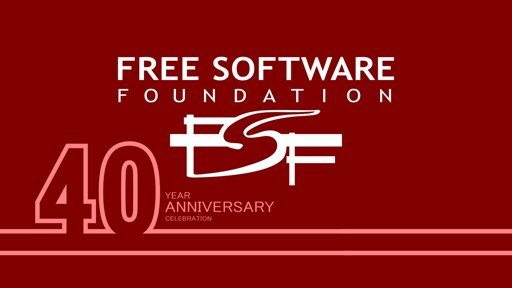The project, developed in partnership with veteran free software developer Rob Savoye, aims to create a fully free and open mobile platform, from the firmware to the operating system.
Tell me more about the phone! This has taken so long and I am ready to migrate to an open phone even if it’s only for texting at this point.
Screw this OS monopoly by Apple and Alphabet.
Open to simple solutions here. I have a Pixel 4a 5g and iPhone 15 Pro* atm.
your pixel probably runs graphene, degoogle it.
you could probably run linux on it today too.
What’s keeping me from doing this is that i won’t be able to run my banking apps anymore then. And I can’t be arsed to carry two phones
linux phones will never run banking apps either.
Perhaps there’s this magic app called a “web-browser” I could introduce you to…
banking doesn’t work on just web browsers anymore on most of the world’s banks. i WISH.
Huh, they still work for all my banks here in the US. Not sure how you’re supposed to access your bank account on your PC otherwise. Some banks you’ll have to use the “use Desktop version of the site” option in a mobile browser to get it to work, but it will still work.
access your bank account on your PC otherwise
we’re not. not without a phone.
Damn, that actually sucks.
Especially when virtualization options are expensive/unavailable on mobile CPUs.
.

My fear with a Linux phone is debugging and troubleshooting. Reading logs and editing text files with a phone keyboard does NOT seem fun.
Hmmm. How about an app for editing configs specifically?
Like, an entire protocol/standard thing for specifying the exact values accepted, too.
No more text-only configs, right?! And apps made specifically to give you a GUI to configure a specific service can still exist on top of this!
That would be a good idea to start this off… right?
Make the settings app extremely modular? Have it be able to parse most config file standards and even provide guidelines for common system config files?
That’d be a modular app. I was thinking of a protocol for settings apps, actually…
gimme gimme
I salute the early adopters who will suffer all the inconveniences of startups so the wider public can enjoy a non-corporate phone in the future. o7
As soon as my current phone is paid off I am going to get this. No more fucking Spyware up the ass.
The project just launched and is a software-first project. We won’t see a Libre Phone available for a while yet.
And if Hurd is any indication I wouldn’t hold my breath.
It isn’t encouraging that they “launched” the initiative bit have no dedicated webpage or git for it yet. Seems like going off half-cocked
That said, didn’t hird basically die because Linux gained critical mass faster and peeled off the core developers? It would be nice to imagine another bottom-up mobile OS emerging and stealing the thunder of this one, but it seems like the hope here is that Libre Phone will gravitate in some of the devs from the existing top-down open phone projects. Who knows if that will work.
One thing I wouldn’t count out right now though: China is very much in favor of getting software and hardware monopolies out from the control of US companies. Free/open(ish) LLMs are the big example, maybe they will jump on this to try and break Google’s stranglehold on the mobile market.
I’m looking forward to get one of these just to play around with it, and maybe making some custom stuff for it.
I’m looking forward to actually seeing how my fucking works and what it’s doing.
how my fucking works and what it’s doing.
I think only you can answer that one, friend
Hopefully this will recruit projects that already have significant headstart, such as Pine64. Otherwise, it would merely be performative.
I want a Linux phone so bad that I refuse to think about what it would be like because i’d be upset afterwards.

I have an original PinePhone. The phone itself is horribly outdated and slow, but the software itself (Phosh+Gnome) is suprisingly okay. Given a good enough phone (as in hardware) I can see myself actually using it and not being annoyed more than I was with early Androids.
Unfortunately what I understand is that FSFE doesn’t intend to do hardware, only software platform, so I wonder whether they’ll come up with anything interesting.
The only way to sucdeed here is to legally force all phones to have unlocked bootloader.
This isn’t even the worst problem. O think the biggest one is proprietary blob drivers, that kills the possibility of keep your phone updated and a general solution that works for most phones instead of an ad-hoc hack for each one.
Linux mobile phones are the fusion power of the FOSS world, always “right around the corner.”
All the pieces are there, but none of them work together smoothly enough to be functional for anybody except the most hardcore FOSS enthusiasts.
When Proton started, it was kind of a joke, killed the Steam Machine idea in large part because the game compatibility was so limited. A decade later, we have a multi billion dollar handheld PC market lead by the Steam Deck, a Linux handheld that can play tens of thousands of Windows games without issue, in some cases with better performance than their native platform.
So it’s certainly possible for things to completely change, but we need a big player or consortium of players to unite with a shared goal of getting a Linux Phone to the state where it’s genuinely able to replace a traditional Android or Apple phone.
I’m very cautiously optimistic, I think it would come together much faster than Proton did for Linux gaming, but again, there needs to be a really heavy push into a singular device to start off. Like how the Steam Deck was, it allowed devs to have a singular platform to target for compatibility. Then, as the platform matures, competitors & innovators can enter the market and expand options, like how now there are multiple distros with builds for handhelds, like Bazzite, Nobara, and CachyOS.
Bazzite sounds like it would be a good start for the OS, though, and that exists now.
When Proton started, it was kind of a joke, killed the Steam Machine idea in large part because the game compatibility was so limited. A decade later, we have a multi billion dollar handheld PC market lead by the Steam Deck, a Linux handheld that can play tens of thousands of Windows games without issue, in some cases with better performance than their native platform.
Proton’s existence did not overlap the existence of the Steam Machine program, like at all. Proton’s initial release was on the 21st of August 2018. Steam Machines were first released in 2015 and had been delisted from Steam entirely by April 2018.
Wine existed back then, sure, but Steam Machines didn’t benefit from DXVK, VKD3D, or any of the myriad per-game and gaming-oriented tweaks that Valve and Codeweavers have made to Wine in the version bundled with Proton. For most people, the prospect of using Wine on a Steam Machine was a huge pain at best. Valve’s official position at the time was that they were helping pay for Linux ports of games.
Fair point, I thought Proton went back farther than that.
I think my overall point is right still though, Linux gaming (native or otherwise) has become not just viable, but in some cases objectively superior to gaming on Windows in terms of raw performance. Pretty amazing, and in even less time than I originally thought lol.
Yeah. It’s improved by leaps and bounds since DXVK and VKD3D came into existence. Wine was already incredibly robust and powerful with like 20 years of development on it, so Proton combining Wine with those other 2 projects for better DirectX support and then also managing Wine prefixes and tweaks automatically brought us from “if you’re persistent and tweak a lot of settings a good chunk of games work” to “most games just work”, and now even “if a game doesn’t work on Linux now it’s because the devs are blocking it actively”
And of course, Valve’s active financial support and direct contributions to all of the projects involved has improved the reliability and performance of all of the tech involved by leaps and bounds.
I hope they can pull this off because we really need this.
I won’t hold my breath, but it’s sorely needed, so, we can hope.
That’s funny. I can’t hold my width.
You can hold my girth
And my axe!
For all of those following, I emailed Rob and he confirmed that the focus of the project to start is reverse engineering binary blobs on existing android devices, but he is currently only at the discovery phase of picking which phones to start with. He is first checking LineageOS compatible phones using his toolset here: https://codeberg.org/rsavoye/librephone/src/branch/main/doc/index.md
I swear they unveiled the libre phone 10 years ago.
I have a Purism Librem 5 phone which is fully FOSS Linux phone.
The name keeps throwing me off lol
I mean when I was looking up there have been people that have been using the term libre phone for somewhere around a decade or so. Hell I found an old Reddit post from 8 years ago that talked about asking if it’d be possible to make a pure libre phone. And then of course it came across the Lebrim 5 that you mentioned there so I’m sure they originally used that term as well.
Incidentally what do you think of the phone do you have just the standard one or do you have that premium one?









